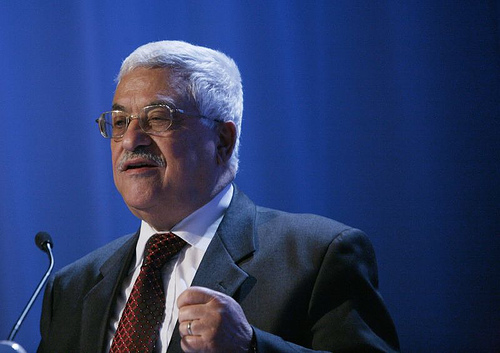By Paul Esau (The Cascade) – Email
Date Posted: October 5, 2011
Print Edition: September 28, 2011
Some say this is a historic moment for Palestinians, the chance to take the negotiation of their statehood out of Israeli hands and place it before the world. Others say it’s the desperate effort of Palestinian National Authority leader Mahmoud Abbas to make something, anything happen before his moderate Fatah party is swept from power.
Either way, it’s another round of inflammatory speeches at the U.N., and another chance for some fist-shaking and rock throwing on the ground. It’s no secret that Abbas’ application for Palestinian statehood is doomed to failure (the U.S. has promised to veto it in the Security Council), yet even the most naive doubt that Abbas is counting on its success. In fact, if the State of Palestine was recognized by the U.N., it would most likely be a disaster for all involved. The last time the U.N. played at “state-making” in the region was 1948, and there’s a reason that year sounds familiar.
This isn’t to imply the vote is a complete waste of time. Given a majority in the General Assembly, the Palestinians could upgrade their status to permanent observer “state,” which, as many commentators have been quick to point out, is the same status enjoyed by the Vatican. The application is also the fulfillment of a promise made to the Palestinian people, and could prevent Abbas’ Fatah party from losing ground to the more radical Hamas movement. Although, since a poll by the Palestinian Center for Public Opinion shows that 45 per cent of Palestinians believe their application will succeed, Abbas is stuck in a difficult position. The same organization alleges that 70 per cent of Palestinians are expecting a third Intifada if negotiations with the Israelis “reach an impasse,” and a failure at the U.N. could definitely be interpreted as an “impasse”.
Yet the real problem with the U.N. vote (from Abbas’ perspective) is that it addresses none of the issues that really stand in the way of Palestinian statehood. The U.N. is not capable of forcing two people groups to coexist peacefully. Neither can it successfully repartition Jerusalem, nor can it prevent Hamas from hammering Ashkelon with Iranian rockets. The distance between the Jordan River and the Mediterranean, within which the two states will potentially coexist, is less than fifty miles, and this simple geopolitical fact ensures that no foreign resolution will ever succeed unless it is supported the majority of citizens of both states.
In essence, this means that the Palestinians must go back to negotiating with Israel. The possibility of a Palestinian state without Israeli support is microscopic, and, furthermore, economically and politically disastrous. The 1967 boundaries upon which the U.N. application is based already requires numerous negotiations, from complicit Israeli approval of a transit corridor between the Gaza Strip and West Bank, to formal wrangling over water rights (since Israel controls the upper Jordan). These issue are currently resolved, yet any attempt to politically outmaneuver the Israelis at the level of the U.N. could jeopardize all previous agreements. The critical issues, such as continuing Israeli settlement and the possession of East Jerusalem, require Abbas and the Palestinians to sit down at the table with Netanyahu and his ilk; something the PNA has been curiously loath to do in the last decade.
Ultimately, this push for U.N. recognition cannot be (and should not be) a legitimate attempt to achieve statehood for Palestine. Instead we should call it what it is, another in a long line of publicity stunts in an increasingly desperate political game. Perhaps this “stunt” will fulfill Abbas’ goal of restarting Israeli-Palestinian negotiation, and perhaps not. Ironically, it was Abbas himself who stalled talks last year after the end of the Israeli settlement freeze in the West Bank, and one has to wonder if he regrets that decision in light of current events. Mahmoud Abbas is running out of time, Hamas is running wild, and the Palestinian people are, once again, apparently out of luck.


